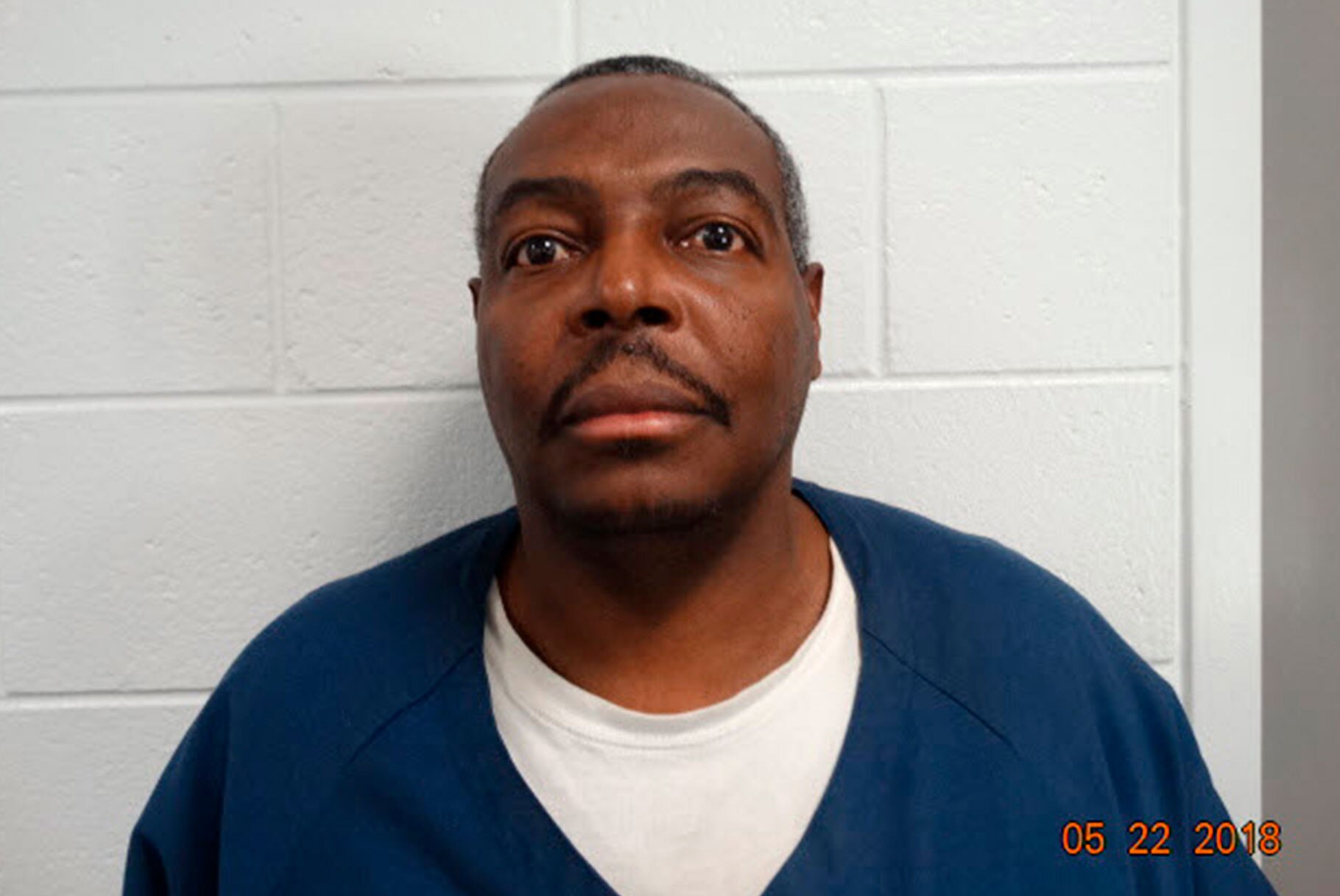Create a free profile to get unlimited access to exclusive videos, breaking news, sweepstakes, and more!
Inmate Who Spent 43 Years Behind Bars Dies Of COVID-19 Weeks Before His Parole Release
William Garrison, who spent decades behind bars for a murder he committed at age 16, was just weeks away from freedom when he died of COVID-19.

After serving close to half a century behind bars, a Michigan inmate died of COVID-19 just weeks away from freedom.
William Garrison was set to be released in early May. Instead, he died on Apr. 13 inside Macomb Correctional Facility. The prison, located in Lenox Township, has been where he resided for almost 44 years.
Garrison had been sentenced to life without parole behind bars for first-degree murder following a 1976 home invasion gone wrong. Garrison, then just 16, shot and killed a man during the incident, the Detroit Free Press reports.
His lawyer Becky Hahn presented evidence during a December hearing, stating that her client had been rehabilitated. She said he was illiterate at the start of his incarceration and has since taught himself to read and write. He then went on to study law in an attempt to help others sentenced to life as juveniles.
“He was a zealous advocate for himself and for other incarcerated persons. He often helped other individuals with their legal matters,” Hahn told the Free Press.
Garrison was re-sentenced to 40 to 90 years in January and was offered parole. He declined parole at the time because he would have been discharged under supervision. He opted to hold out and to be released without supervision in May instead.
His release will never come.
On Apr. 13, Garrison’s cellmate found him gasping for air, according to the Detroit Free Press. He was transported to a hospital, where he was pronounced dead the same day. A postmortem test confirmed he had COVID-19.
Michigan Department of Corrections spokesman Chris Gautz told the Free Press that health care staff members had gone cell-to-cell to assess prisoners just days before Garrison’s death. Rumors circulated that his cellmate had COVID-19 but Gautz said the cellmate denied that during the assessment.
Garrison’s sister Yolanda Peterson, who had made up a room in her home in preparation for her sibling’s release, told the Free Press, "My brother shouldn’t have died in there like that.”
Citing the fact that Garrison could have been released earlier this year, Gautz called his death “unfortunate all the way around.”
Gautz has not immediately responded to Oxygen.com’s request for comment.
Garrison’s death is not an isolated one. At least 17 state inmates have died of coronavirus in Michigan, according to the Free Press. Laura Nirider, co-director of the Center on Wrongful Convictions, told Oxygen.com earlier this month that the prisons and jails nationwide are ripe for the spread of the virus.
“People are living in beds sometimes as close as three feet apart. Many prisons have limited access to hot water, sanitizers, cleaning products, those kinds of things. So, on your best day, prisons are places that are really conducive to the spread of viral illnesses,” she said.
The state of Michigan itself has been hit particularly hard. There are 32,000 confirmed cases of COVID-19 across the state as of April 20, according to the Michigan Department of Corrections.
Nationwide, there have been 22 federal inmate deaths attributed to COVID-19, according to the Federal Bureau of Prisons. At least 497 federal inmates and 319 staff currently have the illness.
On a state level, the most startling statistic comes out of Ohio where there are at least 1,828 confirmed cases inside Marion Correctional Institution, according to the Ohio Department of Rehabilitation and Correction.That’s about 73 percent of that prison’s population, National Public Radio reports. While the number is alarming, it’s being attributed to aggressive testing. Nobody has died at that prison.
"Because we are testing everyone — including those who are not showing symptoms — we are getting positive test results on individuals who otherwise would have never been tested because they were asymptomatic," the Ohio Department of Rehabilitation and Correction stated.
In response to coronavirus concerns, some states have been releasing people who have been jailed for non-serious crimes, NBC News reported earlier this month. In California, two hotels have been transformed to house people who have been released from jails and prisons who have nowhere to call home, according to The Marshall Project.
However, Jessica Jackson, chief advocacy officer at REFORM Alliance and co-founder of #cut50, told Oxygen.com earlier this month that more could be done to help keep inmates safe.
“It’s terrifying that we have not seen a stronger reaction from our government officials,” she said. “It’s like people inside our prisons and jails are being completely discounted. Their welfare doesn’t matter to our lawmakers because they’re in there for committing a crime.”
She said home confinement and compassionate release should be considered as options in the fight against COVID-19.






















